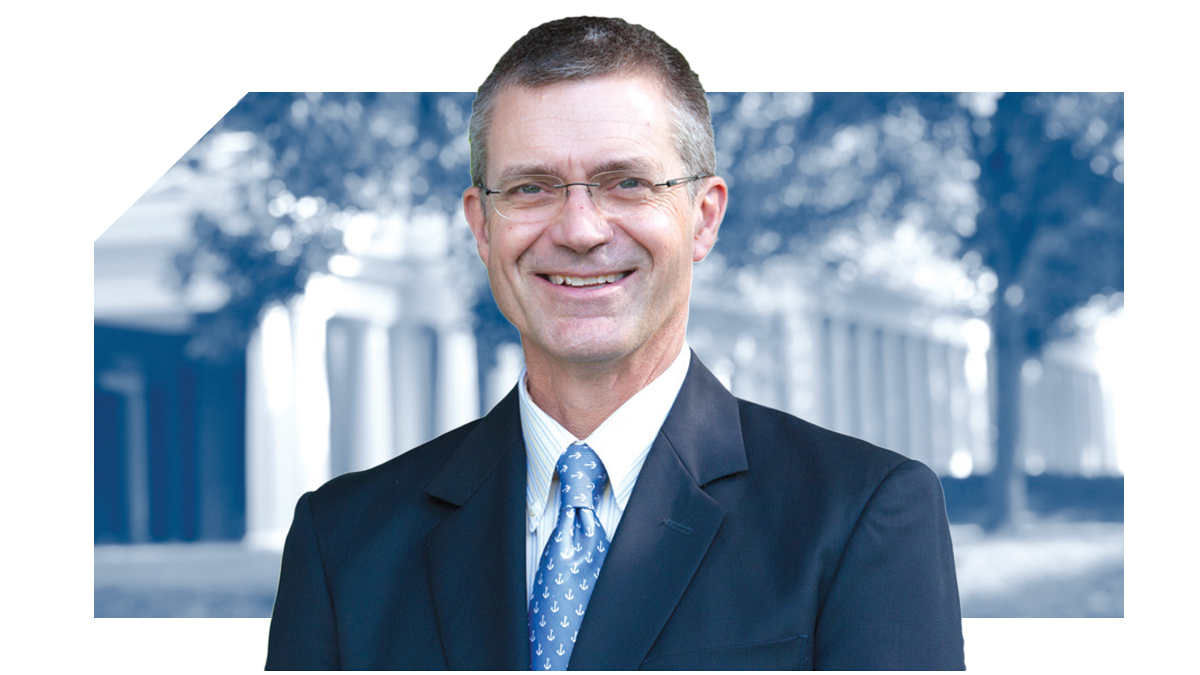Being a conversation changer is more than just talk. It requires action, thought and risk. For the Batten School, being a conversation changer is not just a long-term aspiration—it’s a day-to-day goal that has manifested itself in a range of new initiatives led by students, faculty and staff that are all aimed at making this still relatively young school more inclusive and diverse.
As a school of leadership and public policy, we know that change—a popular word and one that is often used too freely—is not al- ways easy. If you look at history, it’s an unfolding series of changes—some good and some very bad.
Take democracy, something we’re hearing much more about in the news today. As any American knows, democracy grew out of a need for change—it was an effort to defy tyranny and preserve people’s individual liberties and rights. Today, that very same philosophy is the talk of the town, as we are inundated by talking heads claiming that de- mocracy is under siege. They say that in order to save the world, we must have democracy, and if we don’t, all is lost and all will perish. It’s very dramatic, I know. But it should give us all pause.
All of this chatter coincides with the 25th anniversary of the publication of “The End of History.” Written by political scientist Francis Fukuyama following the dissolution of the Soviet Union, what ultimately marked the end of the Cold War, the article claimed that a new liberal order would emerge, one of open and cooperative univer- sal institutions that would serve to manage the affairs of all humans. This would be the end of history in the sense that it would mark the arrival of a new and permanent era of universal institutional management of the international system.
But sadly, this has not been the case.
Instead, we have seen a breakdown of comity, tolerance, decency and respect in our university, community, commonwealth and nation over the past two years. UVA, unfortu- nately and sadly, has not been an exception. But where there is despair there is also hope.
I see a lot of hope within the Batten community — a community galvanized to make sure change happens and to promote toler- ance, openness and of course, inclusiveness. If we want to be conversation changers, then we must take some risks. I see that happening and I could not be more impressed or proud.
Faculty are no exception to this, and new initiatives aimed at heightening our own un- derstanding of the world through the lens of art and visual media are afoot. By bridging the gap between academic disciplines, as well as between the Academical Village and the local community, our faculty are bringing awareness to some of the most pressing issues of our day.
Our country—although it has endured difficult times, political gridlock and vitriol—is still a great country because of its diversity, because of its young and new leaders, and because of its ability to heal and to grow, no matter how daunting the task. This is what makes democracy thrive—it’s what keeps it going in the midst of uncertainty.
I think Batten is starting to reflect that ex- act ethos which our founding fathers hoped would define America as a great nation—a place where individual rights and liberties are paramount and should be protected as well as celebrated.
